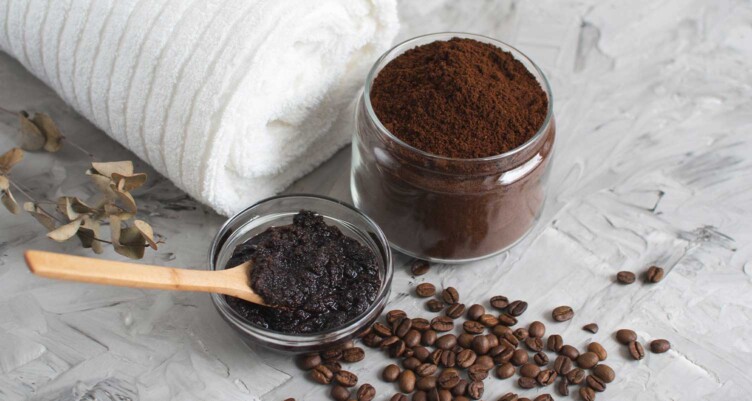Should You Throw Away Coffee Grounds in the Sink? Possible? Not - Insights
Should You Throw Away Coffee Grounds in the Sink? Possible? Not - Insights
Blog Article
We have unearthed this article on Should You Put Coffee Grounds Down the Sink? down the page on the net and reckoned it made perfect sense to discuss it with you over here.

If you're an avid coffee drinker, you may be wondering about the best means to get rid of your coffee grounds. While it may appear convenient to clean them down the sink, this method can result in several concerns for both your plumbing and the atmosphere. In this short article, we'll discover whether it's risk-free to put coffee grounds down the sink and discuss different disposal methods to take into consideration.
Alternatives to Disposing of Coffee Grounds
Garbage Disposal
If you don't have a composting configuration, an additional choice is to just toss your coffee grounds in the trash. Make certain to seal them in a compostable bag or container to avoid smells and leak. While this method doesn't use the very same ecological benefits as composting, it's a safe and practical method to dispose of coffee grounds.
Composting
One environment-friendly alternative for disposing of coffee grounds is to compost them. Coffee premises are abundant in nitrogen, making them an excellent addition to compost piles or bins. As they break down, they add nutrients to the soil, boosting its fertility and structure.
Dangers of Putting Coffee Grounds Down the Sink
Plumbing Issues
One of the primary interest in dealing with coffee grounds down the sink is the threat of obstructing your pipes. Coffee premises don't liquify in water and can gather gradually, forming a thick sludge that can block drains pipes and result in pricey plumbing repair services.
Ecological Impact
Beyond the possible damage to your plumbing, placing coffee premises down the sink can likewise damage the environment. When washed right into the sewage system, coffee grounds can add to clogs in sewer lines and treatment centers. In addition, the high concentration of organic matter in coffee grounds can deplete oxygen degrees in rivers, adversely impacting aquatic life.
Tips for Proper Disposal
Routine Maintenance
Despite exactly how you pick to get rid of your coffee premises, it's vital to keep your plumbing regularly. Schedule routine drainpipe cleansings to eliminate any buildup and make certain that your pipelines stay clear and free-flowing.
Use a Sink Strainer
To prevent coffee premises from entering your sink's drain in the first place, take into consideration utilizing a sink strainer. These cost-effective gadgets trap strong particles, consisting of coffee grounds, stopping them from causing obstructions.
Conclusion
While it might be tempting to wash coffee premises down the sink for benefit, doing so can have significant consequences for your plumbing and the atmosphere. Rather, consider composting your coffee grounds or dealing with them in the garbage. By adopting accountable disposal techniques, you can appreciate your coffee guilt-free while lessening your ecological impact.
Coffee Grounds Down The Drain: Are They OK?
Can Coffee Grounds Go Down the Sink?
You may be thinking, “But I pour them down the sink drain every day and I’ve never had a clogged drain!” You see, coffee grounds come from coffee beans, which are virtually rock hard by the time they’re ground and brewed. You certainly wouldn’t want to grind up the pit from a peach, apricot, or nectarine that is about just as hard because they wouldn’t break down like other foods, and it’s the same with coffee beans!
If you usually grind coffee beans in the garbage disposal because it seems the cleanest and convenient, we don’t fault you for that. And anyone who has ever had to clean up the trash with spilled coffee grounds after a dog got into it would understand the rationale. Unfortunately, coffee grounds do not break down in water, so instead of grinding up and washing away as normal foods do in a garbage disposal, they clump together and as time goes by, the grounds can form a clump and pack the drain until it develops a clog.
What to Do With Coffee Grounds
So, what do you do with coffee grounds if you can't put them down the drain? You could of course just throw them in the garbage, but we encourage you to give these practical uses for them a try!
Since coffee grounds contain key minerals for plant growth, you can use them to fertilize your garden. Coffee grounds not only fertilize gardens because they are mineral-rich, but they are also great at absorbing contaminants in the soil, particularly heavy metals. Coffee grounds are said to attract worms, which help gardens flourish. You can use coffee grounds as fertilizer by sprinkling them around your plants. You can compost your coffee grounds and use them at a later time. Coffee grounds are great insect repellents when you place them in bowls or sprinkle them around the areas you want to repel insects. To remove fleas from your dog or cat, simply shampoo your pet then rub coffee grounds throughout their fur. Rinse them off and dry as usual. Like baking soda, used coffee grounds can eliminate odors. You can place them in a bowl in the fridge and let them do the work! Mix coffee grounds with coconut oil for a wonderful face or body scrub, or to reduce the appearance of cellulite. https://www.wintershomeservices.com/blog/2019/august/coffee-grounds-down-the-drain-are-they-ok-/

As a reader on What are the consequences of putting coffee grounds, I was thinking sharing that excerpt was smart. Do you know another individual who is inquisitive about Can You Put Coffee Grounds in the Sink Garbage Disposal?? Take a moment to share it. I appreciate reading our article about Should You Put Coffee Grounds Down the Sink?.
This Resource Report this page